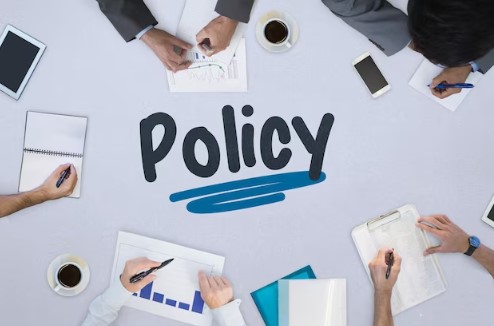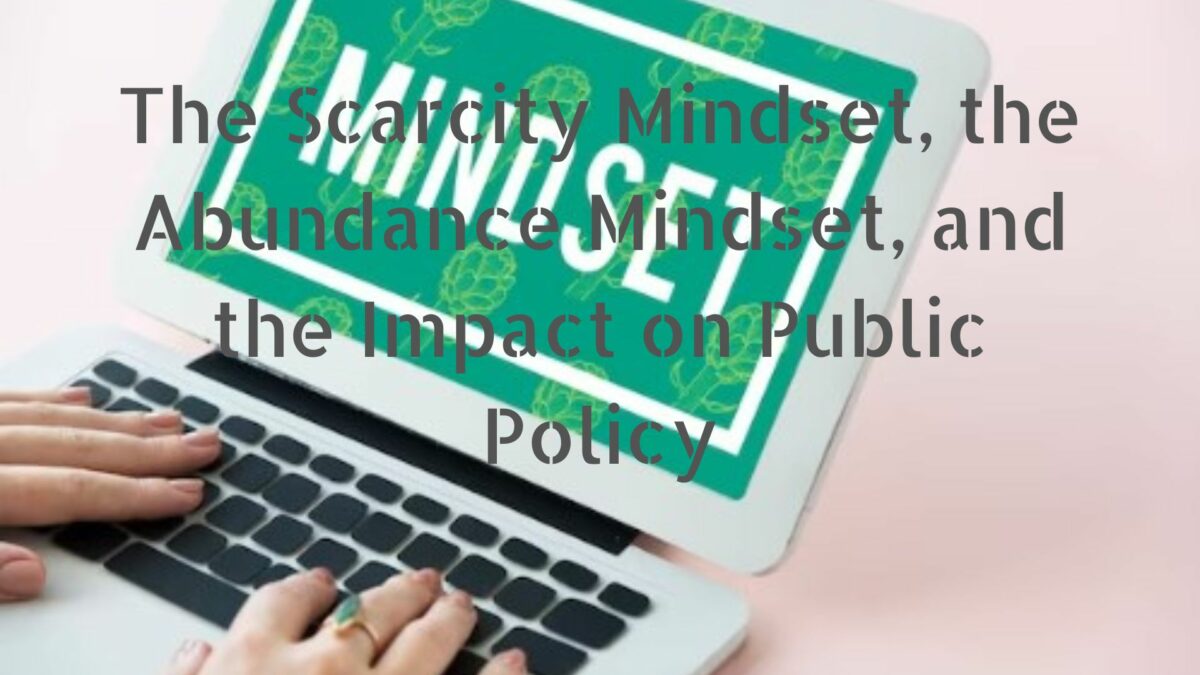Note: A couple of years ago, I had a discussion with one of the deans of the Frank Batten School of Leadership and Public Policy at the University of Virginia. We discussed collaborating on a white paper for publication addressed at state and national government leaders.
Naturally, time and other priorities took hold, and said paper never was collaborated on nor finished. However, at the time, I did take a crack at evaluating how government officials fall prey to the same behavioral biases that the rest of us do and a few steps that people could take to help change the mindset.
I’m not into politics. I research enough to make educated decisions when I vote, but that’s the extent of it. I don’t watch the news. Instead, I control the things I can control in my own life, because if I am centered and happy, then perhaps I’ll radiate that out and help other people. But, that said, were it not so emotionally charged and – in my opinion – dysfunctional, then politics would be extremely interesting. Alas, it’s not, and given that I have a limited amount of time on this planet, I choose to focus on other things. But, even in my politically disinterested state, I was interested enough to put together my very brief treatise on how to point out the behavioral biases and potentially how to change them in our politicians. I hope you enjoy reading it.
“We are not cisterns made for hoarding, we are channels made for sharing.”
–Billy Graham

In the classic novel Silas Marner (#aff), the title character spends a significant portion of his life existing only to work and to hoard his gold. He counts his gold every night and gets his satisfaction from seeing his pile of gold increase. Yet, despite his hoarding, he gets his money stolen from him and falls into a deep depression. It isn’t until he finds an abandoned child in the snow one night that he rediscovers a new meaning in life. He pours his heart into the raising of the child, whom he calls Eppie, and discovers a happier way of life than he had previously experienced.
The story of Silas Marner is the documentation of a person’s journey from a scarcity mindset to a mindset of abundance and the change that he experiences as a result of his journey. Marner associated an early incident where he was accused of stealing with the concept of losing everything, and adopted a scarcity mindset. He hoarded, fearing that he was going to lose everything only, ironically, to lose everything despite his efforts. Once he found Eppie in the snow and gave himself to raising her, he discovered that, through living, his life was enriched; he had adopted an abundance mindset.
Hoarding behavior is prevalent in the animal world. From jays to beavers to squirrels, animals tend to hoard food. Humans have that innate tendency as well. It is well-documented and brought out to light for others to view through reality television shows such as AETV’s Hoarders. If you’ve ever thought “I can’t throw that away because I might need it,” you’ve experienced the impulse to be a hoarder.
This impulse stems from a belief that there is a limited supply of goods in the world. If you have a scarcity mindset, then you do not believe that more good can be created, and so you’re more likely to try to preserve what you have rather than to give it away in the expectation that, through the act of giving, you’ll gain even more.
The mentality of scarcity is an extension of a certain interpretation of self-interest. In an environment where there is a perception of limits to what is available – jobs, food, money, happiness – then a self-interested person would naturally want to obtain and retain as much of a limited resource as possible for the highest possibility of self-preservation or increased standard of living. In this situation, cooperation should be limited to only the extent that it will lead to an increase in one’s own personal resources. A scarcity mindset can be described as a zero sum game, since, as there is only a fixed amount of wealth in the world, one person’s gain has to, by necessity, come at the loss of another. There can be no “win-win” situation with a scarcity mindset.
Oftentimes, we hoard because we are afraid of loss. As economist Richard Thaler pointed out in his famous experiments, people get a lower utility out of an equivalent gain than they lose utility out of an equivalent loss. Once we receive something, we feel that an endowment effect, meaning that we value opportunity costs less than actual out-of-pocket expenses. Even if both are economically equivalent, our brains do not seem them as the same. It’s why the banker in the television show Deal or No Deal can get away with offering contestants less than the expected value of the remaining briefcases; people would rather have a sure thing even if it is worth less than have to go through the potential pain of seeing one of the models open up the million dollar case.
Let us compare the scarcity mindset to a mindset of abundance. Having an abundance mindset means that an individual believes that there is an unlimited amount of good and value which can be created in the world. Because good cannot be inexorably consumed never to return, a person with an abundance mindset does not feel compelled to hoard his own personal stash. Instead of holding onto all of the information he knows to be the “go-to person” at his job, someone with an abundance mindset will share, to help others, so that he may grow as well.
As Steven Covey’s points out with his fourth habit of The Seven Habits of Highly Effective People, “Win-win is a frame of mind and heart that constantly seeks mutual benefit in all human interactions. Win-win means agreements or solutions are mutually beneficial and satisfying.” If you believe that it is possible to create wealth and to create good in the world, then you will seek to do so in any way possible, both within yourself and through the enlistment of the help of others. As the Dalai Lama says, “Take into account that great love and great achievements involve great risk.” An abundance mindset enables a person to take those risks to experience even great achievements; whereas, someone with a scarcity mindset would not be willing to take those risks because of a fear of loss.
Benefits of a Scarcity Mindset
- When resources truly are limited – forces efficiency, cutting costs, appropriate distribution
- Encourages you to improve; if you stand still and everyone else improves, you lose
- Encourages savings – people with a scarcity mindset tend not to overconsume
Evidence of a Scarcity Mindset in Public Policy
- BRAC – endowment theory – money already spent in that district, so a BRAC would cause a perception of loss
- Cross-agency sharing – people don’t want to lose their part of the pie, even if for a greater good. IAC, cross-pollination within State, DHS, DoD
- Cutbacks in foreign aid – if we give money away to others, then that’s less money for us
- Fear of rising economic powers – we see China stealing our prosperity and economy but don’t see that it’s creating a burgeoning middle and upper class who could be consumers of our exports
Actions Citizens Can Take to Encourage an Abundance Mindset
- Give – the quickest way to move from a scarcity mindset to an abundance mindset is to give
- Share ideas – come up with ideas for how to create abundance and share them. The more ideas you come up with, the easier it is to come up with ideas
- Encourage private partnerships as a replacement for government programs – eliminates endowment effect while focusing on creating value
Author Profile
- John Davis is a nationally recognized expert on credit reporting, credit scoring, and identity theft. He has written four books about his expertise in the field and has been featured extensively in numerous media outlets such as The Wall Street Journal, The Washington Post, CNN, CBS News, CNBC, Fox Business, and many more. With over 20 years of experience helping consumers understand their credit and identity protection rights, John is passionate about empowering people to take control of their finances. He works with financial institutions to develop consumer-friendly policies that promote financial literacy and responsible borrowing habits.
Latest entries
 Low Income GrantsSeptember 25, 2023How to Get a Free Government Phone: A Step-by-Step Guide
Low Income GrantsSeptember 25, 2023How to Get a Free Government Phone: A Step-by-Step Guide Low Income GrantsSeptember 25, 2023Dental Charities That Help With Dental Costs
Low Income GrantsSeptember 25, 2023Dental Charities That Help With Dental Costs Low Income GrantsSeptember 25, 2023Low-Cost Hearing Aids for Seniors: A Comprehensive Guide
Low Income GrantsSeptember 25, 2023Low-Cost Hearing Aids for Seniors: A Comprehensive Guide Low Income GrantsSeptember 25, 2023Second Chance Apartments that Accept Evictions: A Comprehensive Guide
Low Income GrantsSeptember 25, 2023Second Chance Apartments that Accept Evictions: A Comprehensive Guide

